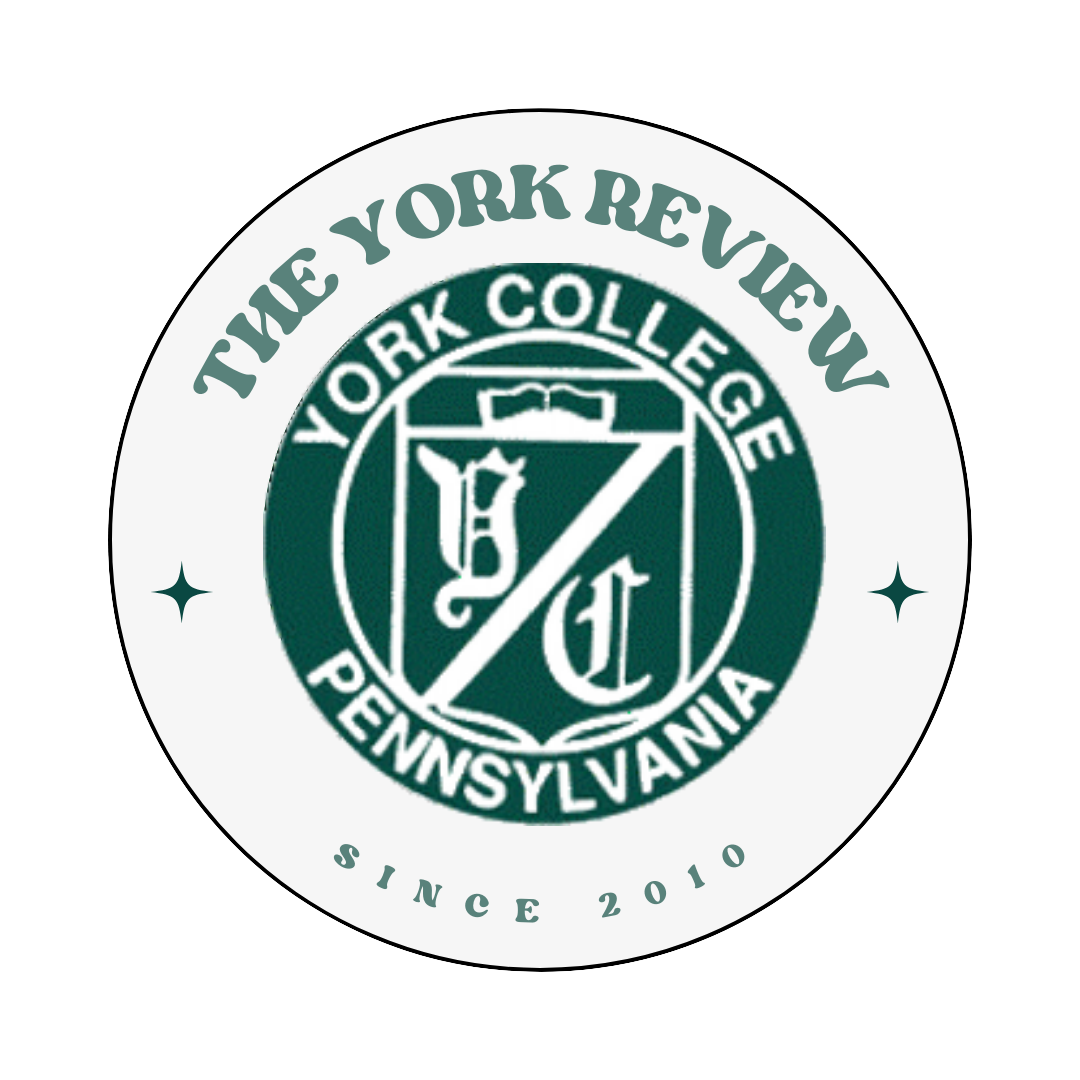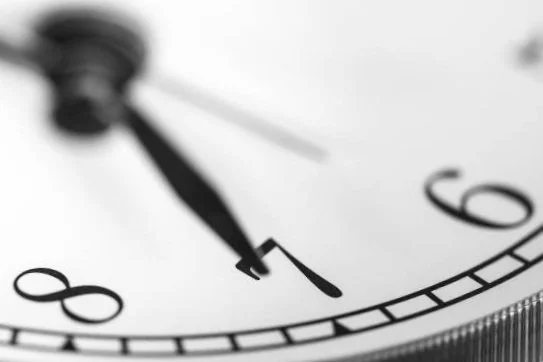God’s Gaze
September 2nd, 6:58 p.m.
I looked at the clock as I rose from bed for the first time that day. It was two minutes until seven— well, technically four minutes until seven. I had purposely set all the clocks in the house so they would be two minutes faster.
Two.
Two.
Two minutes.
Two minutes.
My mother didn’t like to keep time, so the clocks would help her stay on time whilst keeping my mind at ease. I stared at my analog clock and was met with my reflection: long blonde hair tousled from sleep, dark rings surrounding my hollow— no, not hollow— eyes. It was definitely time for me to get up; my mother had asked me to prepare potato and leek stew for dinner. I glanced out the window, taking in the sun shining brightly through my cracked and dusty— no, clear and polished— windows. Its light served as merely a taunt rather than as a source of warmth on the frigid and windy day. But the soup would help with that. I couldn’t possibly eat it, but the cooking process would help. Peeling potatoes would help to warm me.
Could anything warm my bones at this point? Yes, I still had skin to warm.
I made my way across my room— one minute to seven, (one, one)--- and my bright yellow sweatpants made a satisfying swishing noise against the harsh— no, calm— silence of the house. They were my favourite sweatpants: a calming yellow with delicate diagrams of flowers embroidered along the bottom. And that day, as the sun continued to shine through my bedroom windows, embracing my belongings as it set, was a day that I was in need of extra comfort. Not that my room wasn’t comforting, of course. The dingy— no, bright and cheery— teal walls mirrored every 8-year-old girl’s favorite color, and while I didn’t particularly care for the color anymore, it reminded me of home and how my mother painstakingly painted each stroke.
I tiptoed down the narrow hallway, taking care not to disturb my mother. She had been in her room for a while, most likely still asleep, the buzzing of flies serving as a lullaby— no, no flies. I entered the kitchen, the sunlight carefully caressing each and every corner. The potatoes and other vegetables were laid out on the counter—for hadn’t I done this before? No, no— and I placed the sharp peeler in my hands, the blade glistening in the sunlight, daring me to take notice of the past but I didn’t.
As I peeled the potatoes methodically, I took note of each eye as I sliced them away and they dropped to the bottom of the sink. They continued to stare as more and more joined them at the bottom; an army of eyes laid there and watched as I peeled, the pile of potatoes beside me seemingly staying the same size no matter how many I peeled. The sun shone through the window, and suddenly the eyes were no longer eyes but just skin; my skin— no, no, potato skins— adorning the metal bottom.
As I continued to shed the potatoes’ skins, I heard a soft knock on the window; it wasn’t desperate or frantic, but merely served to catch my attention. I glanced upward and as the light shined through onto my dry, cracking — no, no— skin, I saw a god looking in, their elbows rigidly resting on the window sill as if nailed in place. Their eyes mirrored the potatoes’ as they bore into me, sprouts from their face that grew in size as each minute passed. We stared at one another for exactly four minutes— (four, four)--- until they gently raised their palm, elbows still stuck to the sill, and I watched as something slowly emerged from their hand. Scales turned to feathers, and glowing golden light turned to mottled brown; it was a sparrow, not newly hatched but still a fledgling. It also stared at me, its eyes blinking in unison with the potatoes’ in the rusty sink beneath me. I continued to peel potatoes as I stared back, my memories fading but still there, somehow; no longer in reach but I could still touch them if I wanted badly enough. But I didn’t want them, and I, in fact, no longer wanted to rely solely on memories made during a time that I couldn’t quite reach.
The sparrow’s wings unfurled, but the god remained still on the sill, eyes no longer blinking but still watching me as I peeled and peeled and peeled. I peeled the potatoes until the many mugs hanging on my walls began to vibrate, along with the floor and the kitchen knives until I realized I could hear my past ringing as loud as a church bell, the floor beneath me cracking even more than before. As my past called to me, the ringing distracted me and I slipped, the blade nicking my finger, blood oozing from my thick, red well. I started as the droplets landed on the worn linoleum floor, joining older stains from previous days— for hadn’t I done this all before (before)? No, no —- and I stumbled back, struck with my past and ignoring the future (Did I even have one? Yesnoyesno).
It was then that the god moved for the first time since they rested there; they beckoned the sparrow free but it stayed in their palm, cocking its head to the side inquisitively, studying the scene before it: my finger was no longer bleeding, but the remnants remained on the kitchen floor along with the rusted stains of the past. My gaze remained fixed on the sparrow as it raised its wings and shook, the rumbling of its feathers shaking the ground and the house and everything in it—except me, I remained still (still, still). Suddenly, as quick as it all had started, I was at the sink again, wiping my hands on an old, stained tea towel (because I had done this all before, remember? No, no). The towel slipped out of my hands, landing next to the red, inky scribbles on the floor, and it was then that I finally decided to chop the vegetables, existing nowhere but in that moment; the god watched on as I chopped and chopped and boiled and boiled, ignoring my past as it rang out from the sparrow: once, twice, thrice. But I didn’t slip, and the potato peeler remained idle against the rotting wood—wait, wait— on the counter.
The sun had long gone and the moon had now awoken, joining the three of us as its dim light shone through the window. I used to think that it was merely all of me, but I was now watching the moonlight as it highlighted the wear and tear of my family home: dust and cobwebs caressing the dark corners and stray flies making their way from my mother’s room, their buzzing harmonizing with the silence of the moon. As I took in my surroundings, seeing and accepting for the first time the age and length of time that had passed since I had left, I still ignored my past and thought towards the future; of everything it would bring, yet realizing nothing would ever come for me again. The god took notice, and in this version of events, out of a million that had passed, they decided to wait until breakfast to set the sparrow free.
It was at this moment that I blinked and woke up, my eyes met with the rotted and moldy ceiling of my bedroom. The once cream color was now a dingy gray, full of cracks and dripping god-knows-what (did they?). This time, as I rose out of bed, I left my corpse to continue to rot without me. I had had enough of the maggots’ chatter as they made their way through my brain, each crevice once a memory, but now a home; their home (and not mine). I had had enough of the once-god-now-demon sitting in the window, palms tauntingly outstretched as if they had a gift to give and it was just that sparrow, over and over and over again. I had had enough of ignoring my past because there was no future—and it was now time to accept it.
I followed the bloody footprints I had left behind each day as I made my daily trek to the kitchen, this time taking note of my cracked and cloudy windows, the dull and grayness of my walls, and the flies buzzing around my corpse. The sickeningly sweet melody from their buzzing was in unison with the rest of the flies scattered throughout the house. The footprints that I had left behind created a map on the wooden floors of what was once my home— it's theirs now, though— highlighting the path to the kitchen through bloodstains and bits of rotting skin. The mirror in the hallway was cracked, and as my eyes met my own reflection I saw not the hollowness one would expect but the buds of potatoes, growing out of my sockets and taking root in my rotted flesh. I spared merely two minutes longer as I stared at what was anyone’s reflection but my own—what happened to listening to the past? —- before I left, and there I was again in the kitchen, faced with the decomposing potatoes in the sink and the god-turned-demon still sitting on the sill, smirking as flies surrounded their potato eyes. Their palms were no longer outstretched and the sparrow was gone; any hope that had remained turned to despair, and gave way for the past to enter.
As I stood there, eyes locked in the god’s gaze, the door opened, and in they came; coughing and gagging until their eyes swelled, yelling and shouting indiscernible as they made their way past me and towards the source of the flies. They took no notice of me and merely glanced at the eyes and skin in the sink, potatoes and human flesh now indistinguishable. They brought out the corpses and stumbled past, batting away flies with their perfectly intact hands. And just as soon as they had arrived, they were gone, the doors slammed shut behind them.
Yet there I remained, the not-god smirking at the window, blocking the sunlight, and the dead sparrow at my feet.

